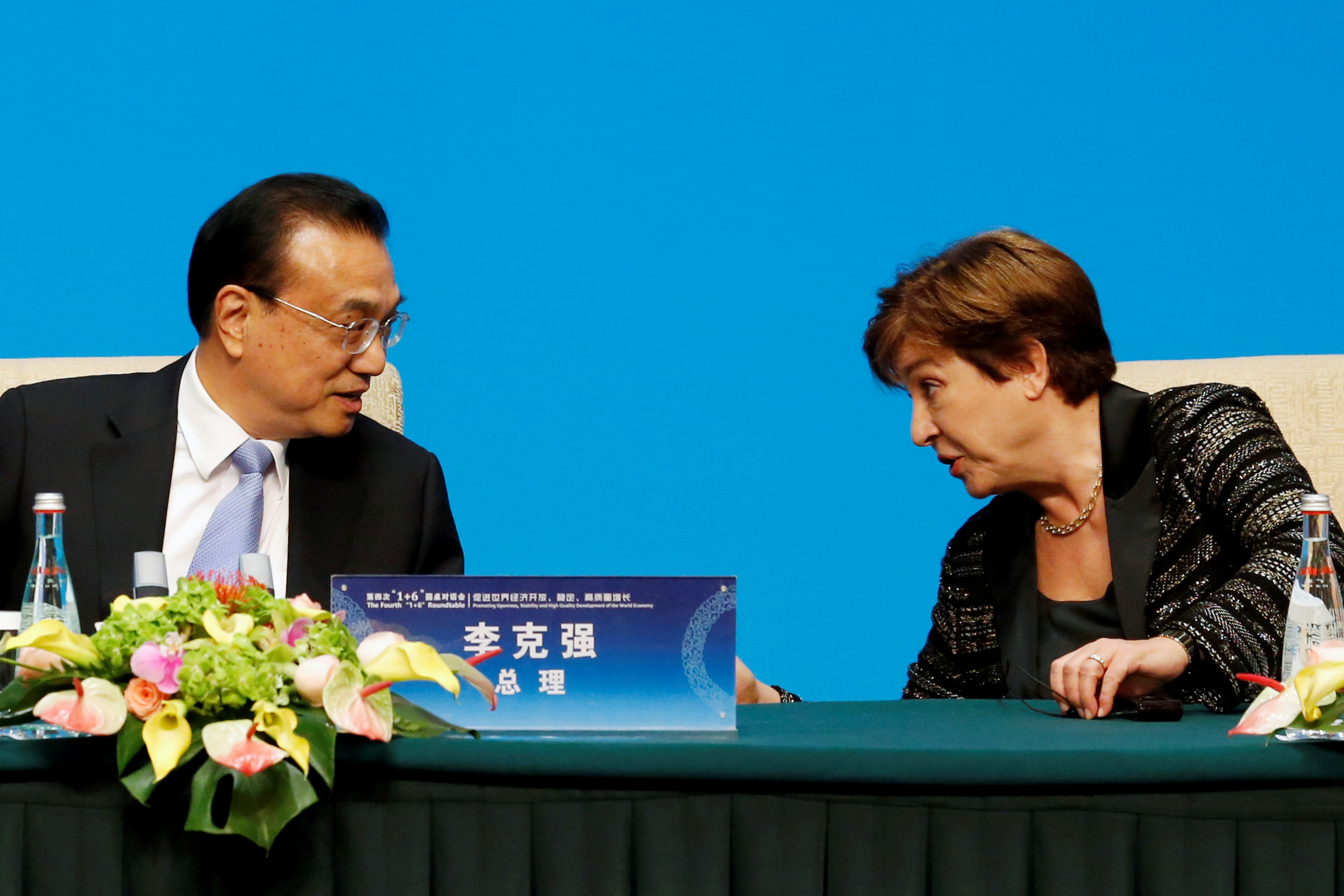
By Andrea Shalal and Marc Jones
WASHINGTON/LONDON (Reuters) – The international community must do more to tackle the economic fallout of the COVID-19 crisis, the head of the International Monetary Fund said on Monday, publicly calling on the World Bank to accelerate its lending to hard-hit African countries.
Some of the key events of the virtual and elongated annual meetings of the IMF and World Bank take place this week, with the most pressing issue how to support struggling countries.
“We are going to continue to push to do even more,” IMF Managing Director Kristalina Georgieva said during an online FT Africa summit.
“I would beg for also more grants for African countries. The World Bank has grant-giving capacity. Perhaps you can do even more… and bilateral donors can do more in that regard,” Georgieva said in an unusual public display of discord between the two major international financial institutions.
No immediate comment was available from the Bank.
Georgieva last week said the IMF had provided $26 billion in fast-track support to African states since the start of the crisis, but a dearth of private lending meant the region faced a financing gap of $345 billion through 2023.
The pandemic, a collapse in commodity prices and a plague of locusts have hit Africa particularly hard, putting 43 million more people at risk of extreme poverty, according to World Bank estimates. African states have reported more than 1 million coronavirus cases and some 23,000 deaths.
G20 governments are expected to extend for six months their Debt Service Suspension Initiative (DSSI) which has so far frozen around $5 billion of poorer countries’ debt payments, but pressure is on the main development banks and private creditors to provide relief too.
HOLDING ONTO GOLD RESERVES
Georgieva said the Fund was also pushing richer member countries to loan more of their existing Special Drawing Rights (SDR), the IMF’s currency, to countries that needed support most, and was “very committed” to finding a way forward for countries like Zambia now needing to restructure their debts.
The United States has blocked Georgieva’s early call for issuance of more SDRs, arguing that it would benefit mostly richer nations, not the developing countries that need it most.
Pledges to the Fund’s Poverty Reduction and Growth Trust, which supports low-income countries, have totaled $21 billion to date, including $14 billion in existing SDR holdings, but more resources were urgently needed, an IMF spokeswoman said.
The IMF chief dodged calls by civil society groups for the IMF to sell off some of its extensive gold reserves, saying the Fund viewed them as an important “financial buffer.”
Profit from selling less than 7% of the IMF’s gold could fund cancellation of all debt payments by the poorest countries to the IMF and World Bank for the next 15 months, the UK-based Jubilee Debt Campaign said in a new report issued Monday.
The IMF said its gold reserve of about 90.5 million ounces (2,814.1 metric tons) was worth about $137.8 billion at the end of December, compared to its historical cost of $4.4 billion.
Georgieva said countries in serious trouble must restructure their debts as soon as possible.
“This is the message for all countries in debt distress… If debt is not sustainable, please move towards restructuring, the sooner the better,” she said.
Georgieva said transparency in lending was critical for all parties, and welcomed what she called “encouraging” statements by China to move toward a more consolidated view of the debts held by the Chinese government and other institutions.
“I believe that now is the moment in this crisis, to make … transparency paramount and mandated to the extent possible everywhere,” she said.
(Reporting by Marc Jones in London, and Andrea Shalal and David Lawder in Washington; Editing by Tom Arnold, Ed Osmond and Andrea Ricci)










